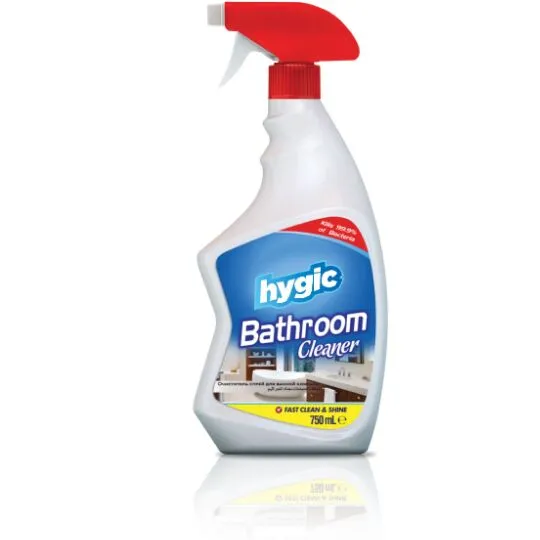Since consumers are becoming more cost-conscious and merchants are trying to provide high-quality, reasonably priced solutions, the market for private-label hygiene liquids has been steadily expanding. With private-label goods, businesses can offer items that are on par with national names at a reduced cost. Retailers and contract manufacturers can benefit from insights into customer purchasing trends and the factors that influence such purchases.
Why Customers Buy Private Label Products
Consumer demand for private label hygiene liquids is being driven by several important factors:
The average price difference between private labels and national brands is between 20 and 30 percent. Lower prices are the key draw for people on a tight budget. A more cost-effective option without compromising on quality is offered by private brands.
Value: When private label products outperform more expensive national brands, consumers believe they are getting an equal or better deal. The influence of brand names is smaller on value shoppers.
Improved Quality: There is now less of a quality difference between private labels and national brands. Better formulae and packaging enable private-label hygiene liquids to compete with name brands.
Customer loyalty to a retailer’s private label is influenced by positive experiences, which encourages repeat purchases. By promoting the store’s brand, they see further benefits.
Variety: More niche scents, formulations, and packaging sizes that national brands do not carry are added to the private label inventory by retailers. Customers are drawn to larger selections and exclusivity.
Considerations for Outsourcing Manufacturers
Contract producers who make hygiene liquids for stores are likewise impacted by changes in the demand for private labels. Production partners should take into account several things:
Formulation expertise is the capacity to provide high-quality formulae that satisfy retailer requirements regarding ingredients, performance, and positioning.
Flexibility: To meet changing customer demands, swiftly modify formulations, and respond to new product trends, hygiene contract manufacturer must be flexible.
Sustainability: Retailers find it appealing when suppliers have transparent supply chains, moral sourcing policies, and environmentally friendly production techniques.
Rapid Product Development: Quick product launches enable merchants to quickly adapt their private label lines to changing consumer preferences.
Innovation in Packaging: While meeting budgetary constraints, manufacturers should provide the newest forms, styles, and materials in packaging.
Customer insights: Manufacturers can advise retail clients on profitable private label tactics by utilizing their understanding of consumer behavior and the outcomes of product testing.
Retailers can expand their private label reach by working with companies that can produce a greater variety of hygiene items. This is known as category expansion.
Private Label Optimization for the Digital Era
Private-label consumers are making more and more purchases online. For retailers to fully realize the potential of private labels, e-commerce, and online content optimization are essential.
Better Details About the Product
Sophisticated internet shoppers are satisfied when they have full information about ingredients, sourcing, quality control, and environmental effects. Deeper education on private label value is possible through digital means.Strong toilet bowl cleaner disinfects and gets rid of tough stains.
Specific online Promotions
Online advertisements that highlight private label products and offer tailored recommendations based on user browsing habits, purchase histories, and demographics can be used.
Client Opinions
Genuine user-generated content increases trust and reveals consumer opinions about how private labels differ from major brands.
Improved Grabbing and Sorting
Improved discoverability of particular private label items allows the correct customers to find the right products through improved search filter optimization and SEO optimization.
Increased Accessibility of E-Commerce
It lowers friction and increases the possibility for online sales when the whole private-label variety is made available online with practical shipping alternatives.
Multichannel Consolidation
One way to create a smooth, cross-channel private label purchase experience is to tie digital promotions to in-store displays and provide buy online, pick up in-store.
Packaging for Online Sales
Private label products arrive undamaged and ready for display after transit when packaging is modified for e-commerce shipping without sacrificing aesthetics.
Using Social Media to Promote
Social media sites feature private label content to encourage interaction and introduce the brand to new customers.
Partnerships with Influencers
Working with influencers who share the principles of the private label gives millions of followers dependable endorsements.
Constant Improvement
Over time, results are improved through the use of data and testing to better site merchandising, product content, and tailored outreach.
Conclusion
Retailers have more opportunities to increase brand loyalty and provide value to customers with private-label hygiene liquids. To take advantage of the expanding private label market, contract manufacturers must stay up to date on the newest technologies, motives, and trends. Retailers and the manufacturers they work with may make smart decisions together if they know what is driving customer purchases and changes in the market. Businesses will set the standard for private-label hygiene liquids if they can design superior goods, show off their formulation skills, source ethically and sustainably, and use cutting-edge packaging.

